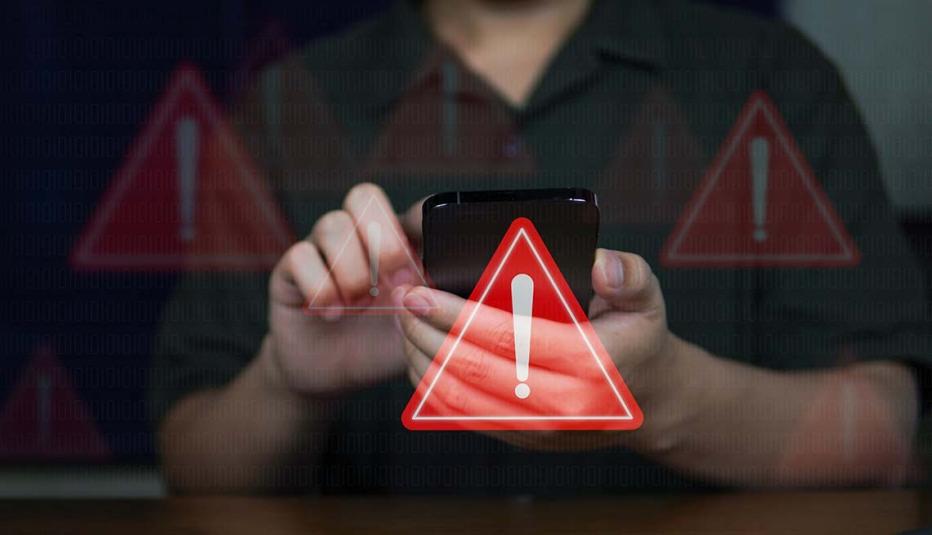AARP Hearing Center
As the holiday season approaches, Americans are increasingly turning to convenient digital tools and traditional gift cards, a shift that significantly increases the risk of fraud, a new AARP Research survey reveals.


Scammers are targeting everyone, regardless of age. Nearly 9 out of 10 adults in the U.S. (89%) report being targeted by or experiencing some type of scam. The findings underscore that this holiday shopping season consumers need to stay vigilant and mindful of scammers while understanding the risks that come with shopping, booking travel and charitable giving.
The risks are ubiquitous in today’s tech-forward life. Text messaging, peer-to-peer (P2P) payment apps like Cash App and Venmo, and social media are all places where these criminals are lurking. Sending packages and physical gifts is also getting riskier, as package theft is on the rise. Three in 10 adults (30%) report having had a package stolen from outside their door.
Sending money electronically
The use of P2P platforms like Cash App, Venmo and Zelle has jumped, with 3 in 4 (75%) consumers using them in the past year, up from 70% in 2024. This popular convenience brings more risk to transactions than, for example, using credit cards.
Two in 5 consumers (42%) report sending money to someone they don't know well, and 40% pay sellers with whom they haven't done business before. Both practices are up from a year ago.
Social media targets
Social media ad scams are also spiking. Nearly 2 in 5 consumers (39%) reported experiencing fraud after buying something through a social media ad, a noticeable rise from the previous year (35%).
Almost half of adults surveyed (46%) bought something advertised on social media in the last year. Despite this high level of activity, consumer awareness of the risks remains limited, with too many placing unearned trust in social media commerce. Only half (50%) correctly identified that social media ads are often untrustworthy.
Gift card fraud and package theft increase
Gift cards remain a holiday staple, with 7 in 10 consumers (72%) planning to purchase them this year. Unfortunately, criminals have become experts at draining these cards. One-third (33%) of adults have given or received a gift card with no balance.
While convenient, buying gift cards off the rack at retail stores (60% plan to do this) leaves consumers exposed to selecting gift cards that scammers have tampered with, recording the number and PIN, and draining funds as soon as the card is purchased.
Need for lawmaker action, education
Consumers want more protection from scams. Nine in 10 U.S. consumers — regardless of their political affiliation or background — strongly or somewhat agree that lawmakers need to step up and do more to prevent scams.
With consumer knowledge concerning safe financial practices remaining low, education is also needed. In a test of 10 true/false questions about safe practices, only 27% of respondents answered seven or more questions correctly, indicating a significant knowledge shortfall among the general population.
While safer payment methods, like greater credit card use, are becoming more prevalent, major knowledge gaps persist, particularly in recognizing scams and safe shopping practices.
Among the priority areas identified as calling for effective educational messages to prevent fraud: spotting fake ads, improving payment safety by using credit cards, increasing awareness of emerging scams, learning to verify organizations and authenticating charities.
Methodology
The survey of 1,849 U.S. residents age 18 and over who regularly use the internet and shop for holidays was fielded from August 11 to August 20, 2025. The sample includes a total of 400 African American/Black, 402 Hispanic/Latino and 401 Asian American and Pacific Islander respondents. The full sample was weighted by age, race/ethnicity, gender and census division according to 2022 Census Bureau National ACS 5-year statistics. The same procedure was used on each oversample, excluding weighting by race/ethnicity.
For more information, please contact Jennifer Sauer at jsauer@aarp.org. For media inquiries, contact External Relations at media@aarp.org.





































































